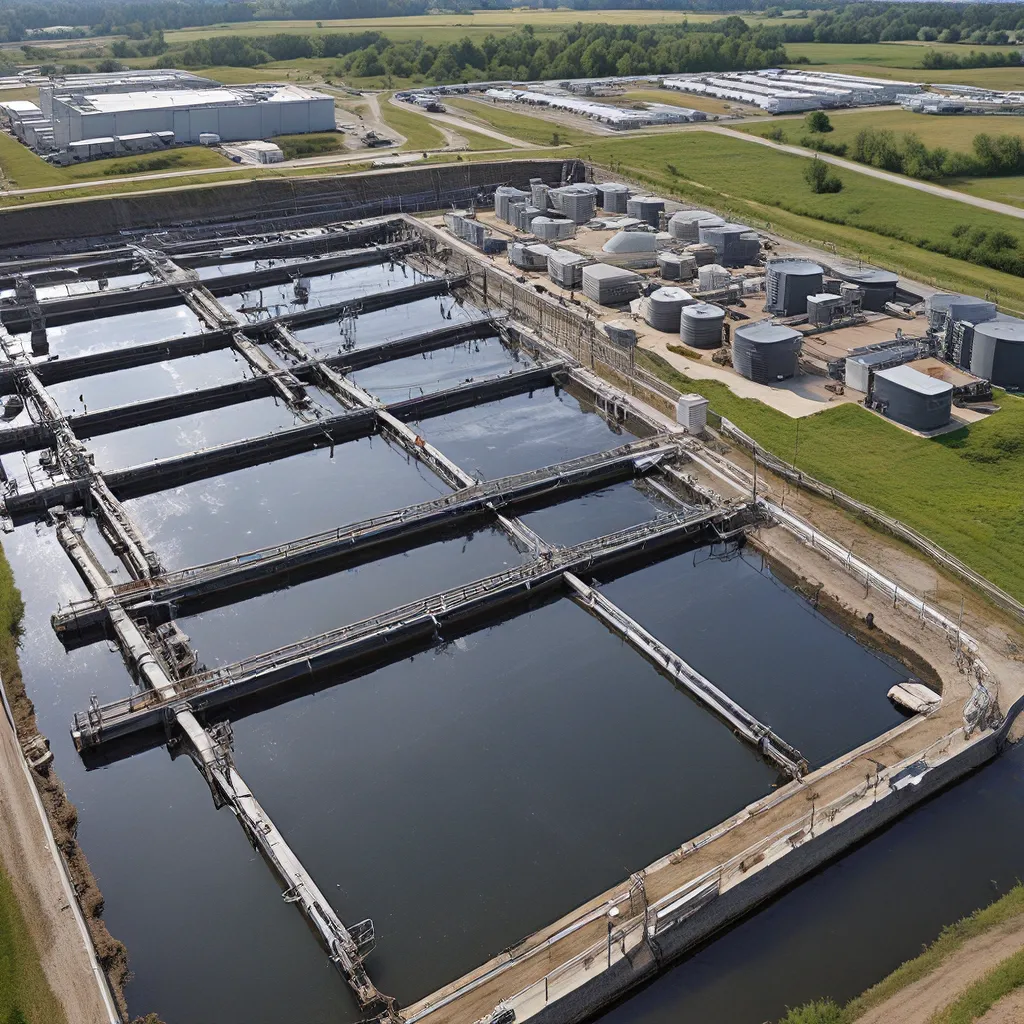
Unlocking the Power of Sustainability: Discovering Innovative Approaches to Wastewater Treatment
As an advocate for sustainable practices, I’ve always been fascinated by the intersection of energy efficiency and wastewater treatment. In a world where resources are finite and the need for environmental stewardship is more pressing than ever, finding innovative solutions to these challenges has become a personal passion of mine.
Let me take you on a journey through the fascinating world of energy-efficient wastewater treatment. We’ll explore the latest advancements, uncover the barriers that stand in our way, and discover how we can collectively work towards a more sustainable future.
Embracing the Water-Energy Nexus
At the heart of this exploration lies the water-energy nexus – the intricate relationship between water and energy systems. As water operators strive to meet the growing demand for clean water, they often face the challenge of energy-intensive treatment processes. Conversely, the production and distribution of energy also requires a significant amount of water.
This symbiotic relationship presents both opportunities and challenges. By understanding and optimizing this nexus, we can unlock a world of possibilities in the realm of water management and energy efficiency. It’s a delicate balance, but one that holds the key to a more sustainable future.
Barriers to Energy Efficiency in Wastewater Treatment
As we dive deeper into this topic, it’s important to acknowledge the barriers that have historically hindered the adoption of energy-efficient solutions in wastewater treatment. These barriers can range from technological limitations and financial constraints to regulatory hurdles and organizational inertia.
“One of the main barriers we’ve encountered,” says Jane, an expert in the field, “is the upfront cost of investing in new, more efficient technologies. Many utilities are hesitant to take on the risk, even if the long-term benefits outweigh the initial investment.”
Additionally, outdated infrastructure and a lack of skilled personnel can further complicate the transition towards energy-efficient practices. Overcoming these barriers will require a multifaceted approach that combines technological innovation, strategic planning, and collaborative efforts.
Innovative Approaches to Energy-Efficient Wastewater Treatment
Fortunately, the tide is turning, and we’re witnessing a surge of innovative approaches to energy-efficient wastewater treatment. From advanced anaerobic digestion systems to cogeneration technologies, the industry is constantly evolving to meet the growing demand for sustainable solutions.
One particularly promising area is the integration of renewable energy sources, such as solar and wind power, into the wastewater treatment process. By harnessing these clean energy sources, utilities can reduce their reliance on traditional, energy-intensive methods and take a significant step towards carbon neutrality.
Another fascinating development is the recovery of energy and resources from the wastewater stream. Through innovative techniques like biogas capture and nutrient recovery, wastewater treatment plants are transforming from energy consumers to energy producers, creating a more circular economy in the process.
Collaborative Efforts and the Path Forward
As we continue to explore the vast potential of energy-efficient wastewater treatment, it’s clear that collaboration and knowledge-sharing will be crucial to our success. At Alpha Wastewater, we’re proud to be at the forefront of this movement, working closely with industry partners, policymakers, and research institutions to drive innovation and break down the barriers to sustainability.
“The path forward is not without its challenges,” acknowledges Sarah, our sustainability director. “But I firmly believe that by working together, sharing our learnings, and continuously pushing the boundaries of what’s possible, we can create a more energy-efficient, environmentally-conscious future for wastewater treatment.”
As I reflect on this journey, I’m struck by the sheer potential of the innovations we’ve explored. While the road ahead may not be without its obstacles, I’m confident that with dedication, creativity, and a shared commitment to sustainability, we can unlock the full power of energy-efficient wastewater treatment and pave the way for a brighter tomorrow.
Exploring the Horizon: Emerging Trends and Future Possibilities
As we look towards the future, the landscape of energy-efficient wastewater treatment is poised for even more transformative changes. Emerging trends and technologies suggest that the possibilities are truly endless.
One area that holds immense promise is machine learning and artificial intelligence. By harnessing the power of data analytics and predictive modeling, wastewater treatment plants can optimize their operations, identify energy-saving opportunities, and anticipate potential issues before they arise.
Additionally, the integration of Internet of Things (IoT) devices and smart sensors can provide real-time insights into the treatment process, enabling precise control and optimization to maximize energy efficiency.
As we continue to explore these frontiers, it’s important to remain cautiously optimistic and acknowledge the potential limitations and uncertainties that may arise. Experts suggest that ongoing research and collaborative efforts will be crucial in navigating the complexities and ensuring the long-term sustainability of these solutions.
Embracing the Future: A Call to Action
In the end, our journey through the world of energy-efficient wastewater treatment has been one filled with fascinating insights, inspiring innovations, and a deep sense of purpose. As we stand at the cusp of a new era, it’s clear that the path forward is not without its challenges, but the rewards of our collective efforts are truly transformative.
I invite you to join me in this pursuit of sustainability, to explore the frontiers of energy efficiency, and to be part of the solution that will shape the future of our water systems and our planet. Together, we can unlock the power of innovation, foster collaboration, and inspire a new generation of stewards who will carry this important work forward.
The time for action is now. Let’s embark on this journey and redefine the future of wastewater treatment – one that is energy-efficient, environmentally responsible, and filled with boundless possibilities.